�
FUNCTIONAL VERIFICATION
COVERAGE MEASUREMENT AND
ANALYSIS
This page intentionally left blank
�
FUNCTIONAL VERIFICATION
COVERAGE MEASUREMENT AND
ANALYSIS
by
Andrew Piziali
Verisity Design, Inc.
KLUWER ACADEMIC PUBLISHERS
NEW YORK, BOSTON, DORDRECHT, LONDON, MOSCOW
�
eBook ISBN:
Print ISBN:
1-4020-8026-3
1-4020-8025-5
©2004 Kluwer Academic Publishers
New York, Boston, Dordrecht, London, Moscow
Print ©2004 Kluwer Academic Publishers
Boston
All rights reserved
No part of this eBook may be reproduced or transmitted in any form or by any means, electronic,
mechanical, recording, or otherwise, without written consent from the Publisher
Created in the United States of America
Visit Kluwer Online at:
and Kluwer's eBookstore at:
http://kluweronline.com
http://ebooks.kluweronline.com
�
Table of Contents
Foreword
Preface
Introduction
1.
2.
3.
4.
The Language of Coverage
Functional Verification
2.1.
2.2.
2.3.
2.4.
Design Intent Diagram
Functional Verification
Testing versus Verification
Functional Verification Process
2.4.1.
2.4.2.
2.4.3.
2.4.4.
Functional Verification Plan
Verification Environment Implementation
Device Bring-up
Device Regression
2.5.
Summary
Measuring Verification Coverage
3.1.
Coverage Metrics
Implicit Metrics
Explicit Metrics
Specification Metrics
Implementation Metrics
3.1.1.
3.1.2.
3.1.3.
3.1.4.
3.2.1.
3.2.2.
3.2.3.
3.2.4.
3.2.
Coverage Spaces
Implicit Implementation Coverage Space
Implicit Specification Coverage Space
Explicit Implementation Coverage Space
Explicit Specification Coverage Space
3.3.
Summary
Functional Coverage
4.1.
4.2.
4.3.
Coverage Modeling
Coverage Model Example
Top-Level Design
ix
xiii
1
5
15
16
17
19
19
20
26
27
28
30
31
31
32
33
33
34
34
35
35
36
37
38
39
39
40
44
�
4.3.1.
4.3.2.
4.4.1.
4.4.2.
4.4.3.
5.2.1.
5.2.2.
5.2.3.
5.2.4.
5.2.5.
5.2.6.
5.2.7.
5.2.8.
5.3.1.
5.3.2.
5.3.3.
5.
6.
Attribute Identification
Attribute Relationships
4.4.
Detailed Design
What to Sample
Where to Sample
When to Sample and Correlate Attributes
4.5.
4.6.
Model Implementation
Related Functional Coverage
4.6.1.
4.6.2.
4.6.3.
Finite State Machine Coverage
Temporal Coverage
Static Verification Coverage
4.7.
Summary
Code Coverage
5.1.
5.2.
Instance and Module Coverage
Code Coverage Metrics
Line Coverage
Statement Coverage
Branch Coverage
Condition Coverage
Event Coverage
Toggle Coverage
Finite State Machine Coverage
Controlled and Observed Coverage
5.3.
Use Model
Instrument Code
Record Metrics
Analyze Measurements
5.4.
Summary
Assertion Coverage
6.1.
6.2.
6.3.
6.4.
6.5.
What Are Assertions?
Measuring Assertion Coverage
Open Verification Library Coverage
Static Assertion Coverage
Analyzing Assertion Coverage
6.5.1.
6.5.2.
Checker Assertions
Coverage Assertions
6.6.
Summary
vi
Functional Verification Coverage Measurement and Analysis
45
50
61
62
65
66
67
75
75
76
77
78
79
79
80
80
81
82
84
84
85
85
88
89
89
90
90
95
97
97
102
103
104
104
105
106
107
�
7. Coverage-Driven Verification
7.1.
7.2.
Objections to Coverage-Driven Verification
Stimulus Generation
7.2.1.
7.2.2.
Generation Constraints
Coverage-Directed Generation
7.3.
7.4.
Response Checking
Coverage Measurement
7.4.1.
7.4.2.
7.4.3.
7.4.4.
7.5.1.
7.5.2.
7.5.3.
Functional Coverage
Code Coverage
Assertion Coverage
Maximizing Verification Efficiency
7.5.
Coverage Analysis
Generation Feedback
Coverage Model Feedback
Hole Analysis
7.6.
Summary
8.
Improving Coverage Fidelity With Hybrid Models
8.1.
8.2.
8.3.
8.4.
Sample Hybrid Coverage Model
Coverage Overlap
Static Verification Coverage
Summary
Appendix A: e Language BNF
Index
109
110
112
113
115
120
122
123
124
126
127
129
129
130
131
136
139
140
147
149
150
151
193
“Table of Contents”
vii
�
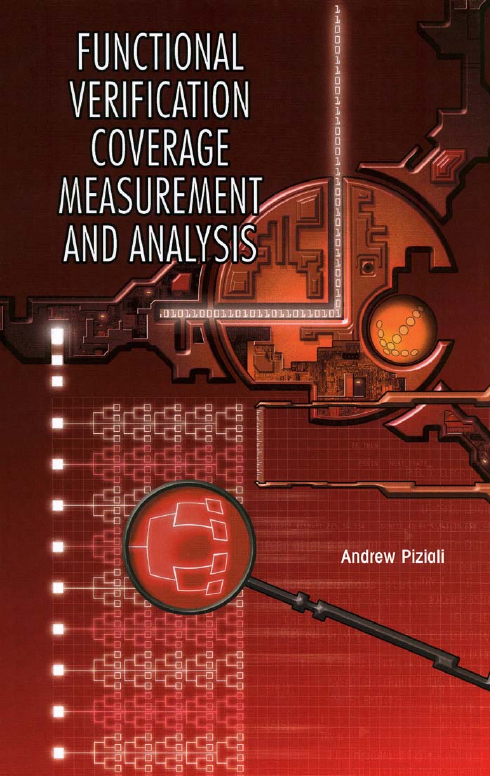
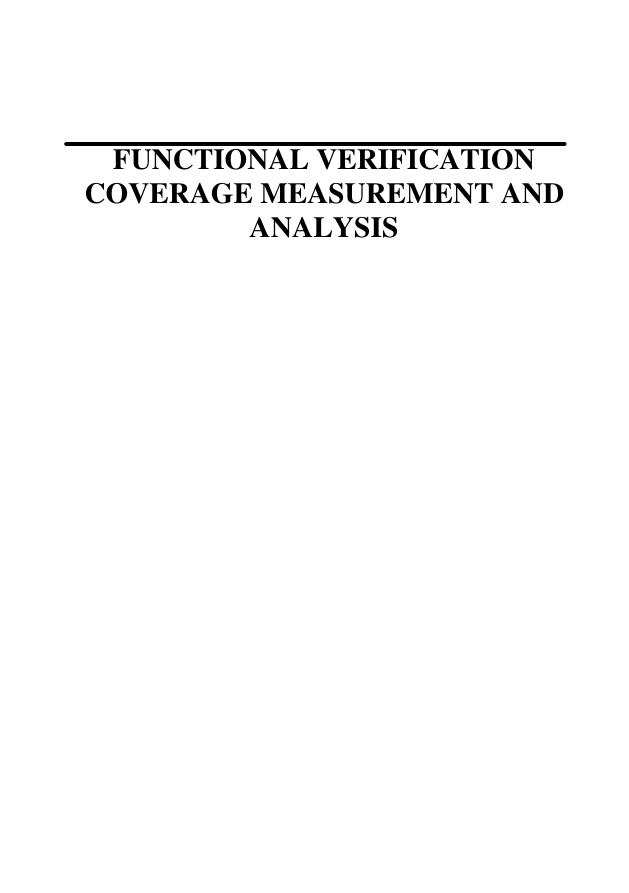

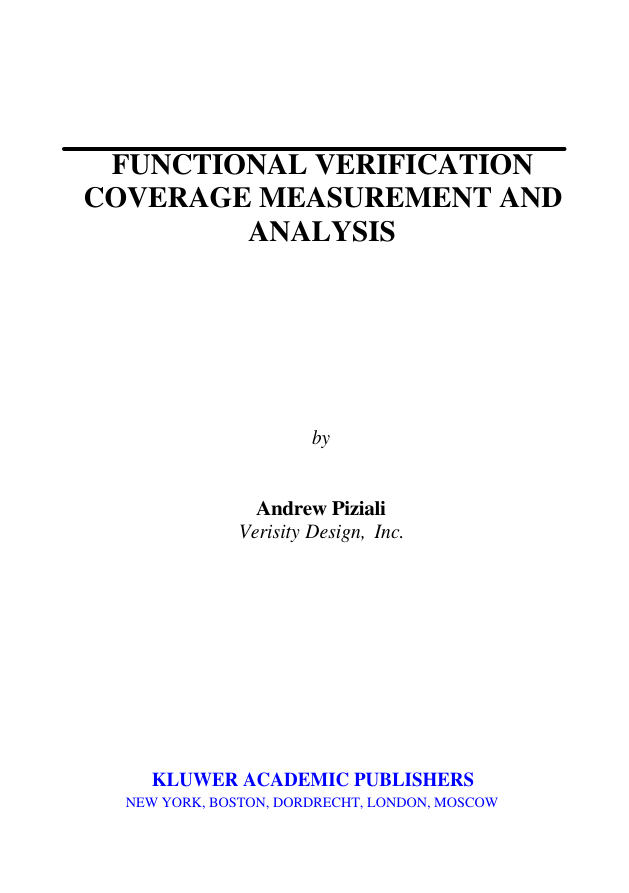
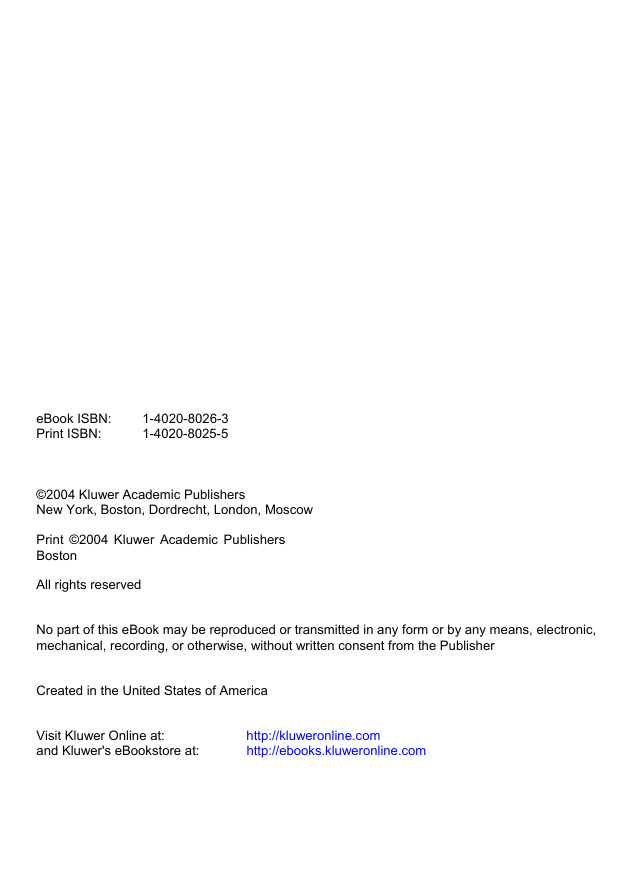
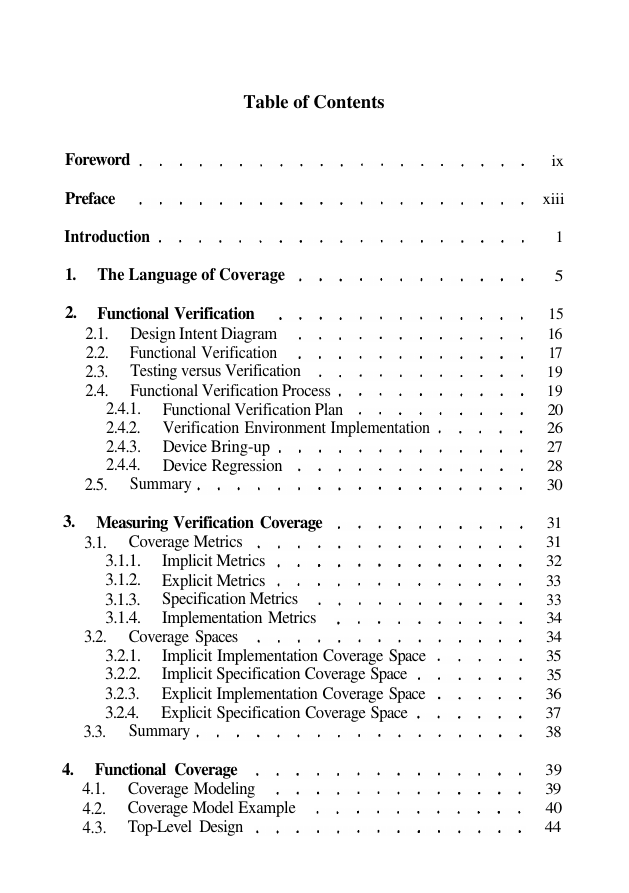
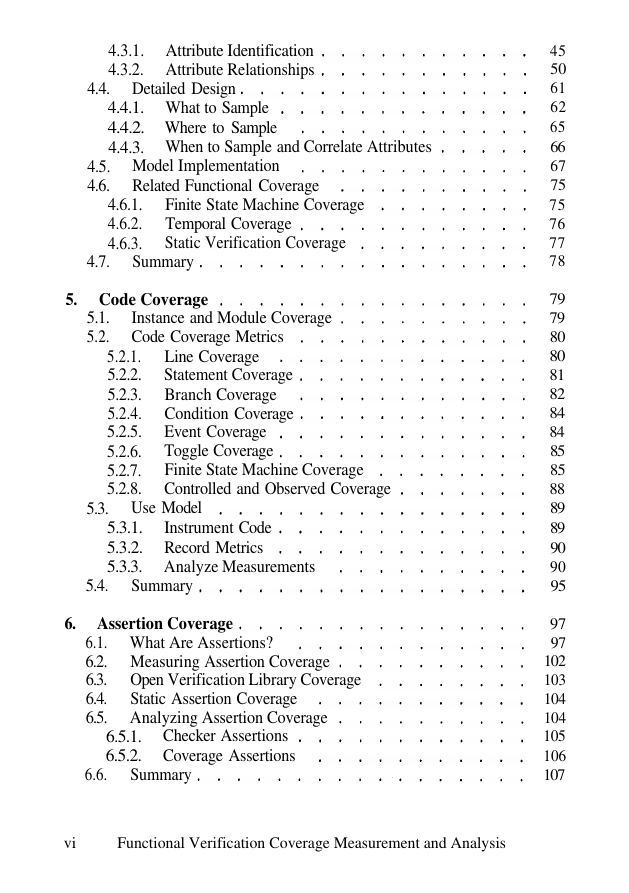
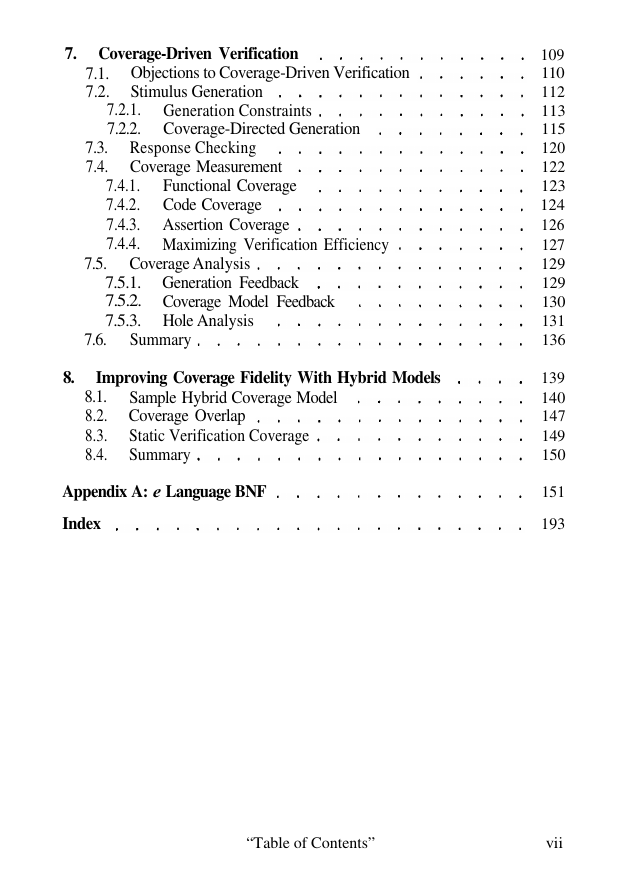








 2023年江西萍乡中考道德与法治真题及答案.doc
2023年江西萍乡中考道德与法治真题及答案.doc 2012年重庆南川中考生物真题及答案.doc
2012年重庆南川中考生物真题及答案.doc 2013年江西师范大学地理学综合及文艺理论基础考研真题.doc
2013年江西师范大学地理学综合及文艺理论基础考研真题.doc 2020年四川甘孜小升初语文真题及答案I卷.doc
2020年四川甘孜小升初语文真题及答案I卷.doc 2020年注册岩土工程师专业基础考试真题及答案.doc
2020年注册岩土工程师专业基础考试真题及答案.doc 2023-2024学年福建省厦门市九年级上学期数学月考试题及答案.doc
2023-2024学年福建省厦门市九年级上学期数学月考试题及答案.doc 2021-2022学年辽宁省沈阳市大东区九年级上学期语文期末试题及答案.doc
2021-2022学年辽宁省沈阳市大东区九年级上学期语文期末试题及答案.doc 2022-2023学年北京东城区初三第一学期物理期末试卷及答案.doc
2022-2023学年北京东城区初三第一学期物理期末试卷及答案.doc 2018上半年江西教师资格初中地理学科知识与教学能力真题及答案.doc
2018上半年江西教师资格初中地理学科知识与教学能力真题及答案.doc 2012年河北国家公务员申论考试真题及答案-省级.doc
2012年河北国家公务员申论考试真题及答案-省级.doc 2020-2021学年江苏省扬州市江都区邵樊片九年级上学期数学第一次质量检测试题及答案.doc
2020-2021学年江苏省扬州市江都区邵樊片九年级上学期数学第一次质量检测试题及答案.doc 2022下半年黑龙江教师资格证中学综合素质真题及答案.doc
2022下半年黑龙江教师资格证中学综合素质真题及答案.doc